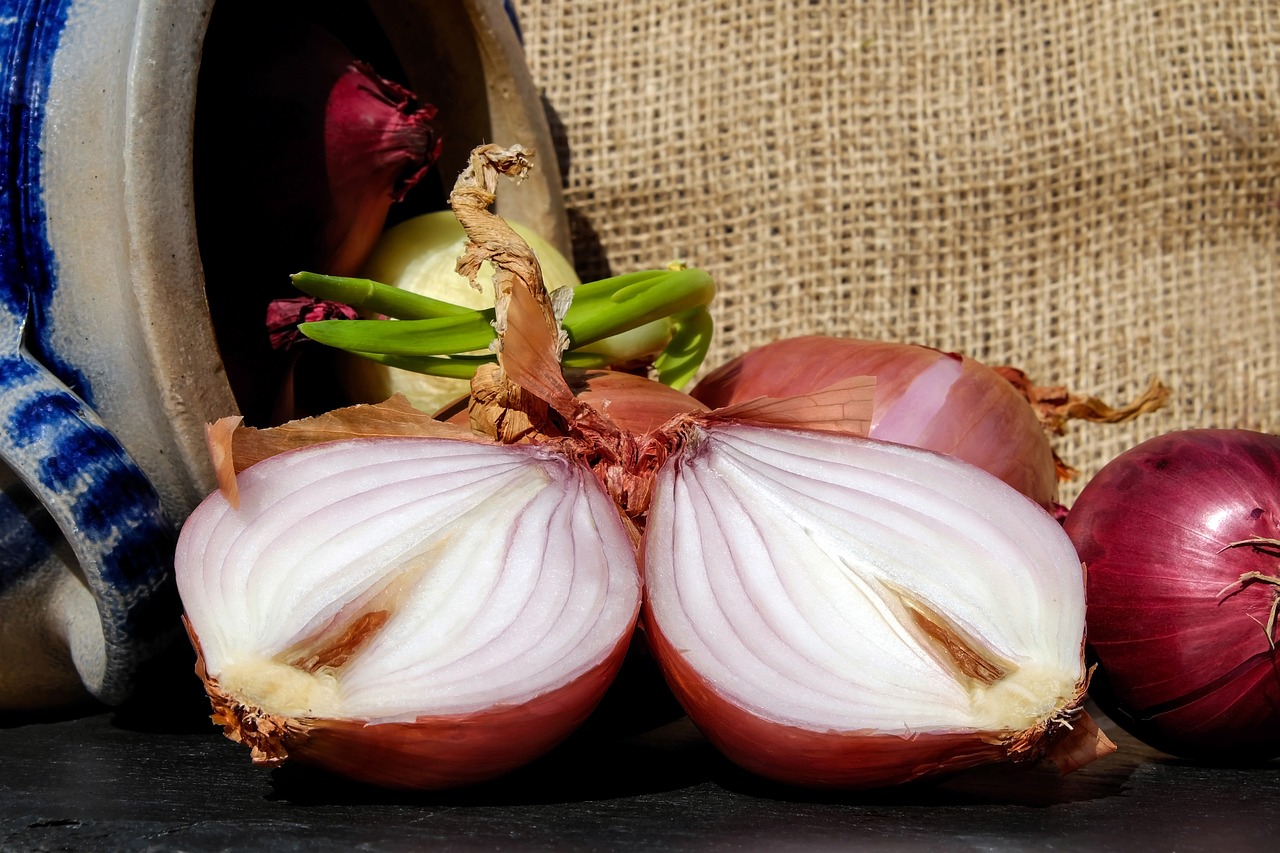Onions are a food that is used daily in the kitchen, but many of their health benefits or properties are unknown. With a characteristic taste and multiple culinary choices, what vitamins or minerals does it contain?
Onions are one of the indispensable foods in any pantry due to their versatility. In Spain they’re part of everyday life as they’re an essential product in the vast majority of traditional dishes and its use in the Mediterranean diet.
How do onions contribute to health?
Like almost all fruits and vegetables, onions have a high percentage of water, Ana Molina Jiménez, pharmacologist and dietitian and nutritionist at AM Nutrición Integral explained. In addition, she highlighted their low calorie content, about 40 calories per 100 grams of onion.
Among its properties, onions contribute 25% of the recommended daily amount of vitamin C and 20% of vitamin K. Although calcium is always associated with dairy products, Molina underlines that they contain 15 percent of the recommended daily amount of this mineral.
Despite not being as essential as vitamins or minerals, onions contain phytochemicals of the flavonoid type, specifically quercetin.
Phytochemicals are substances found in plants that “give fruits and vegetables their color, and each color has characteristic nutrients,” Molina said. These nutrients provide specific benefits; thus a diet rich in fruits and vegetables is advised.
Health benefits
- Immune system
Quercetin has a specific benefit: it strengthens the immune system. Therefore, along with the quantity of vitamin C onions contain, they’re a product that allows people to stay healthy and strong.
The boost in defenses, its antioxidant power and the prevention of DNA damage are general characteristics of phytochemicals.
For this reason, Ana Molina highlights a study by the American Institute for Cancer Research that mentions how onions protect against this disease due to their general benefits and quercetin, which enhances the immune system.
Although no food prevents cancer, maintaining a strong immune system through diet always helps in preventing the disease, Molina said.
- Strong and healthy bones
Since onions contain a considerable amount of calcium and vitamin K, their consumption helps maintain bones and prevent bone diseases such as osteoporosis, according to Molina.
- Respiratory diseases
Onions contain sulfur compounds; the volatile substance that spreads through the air when they’re cut is what causes eye irritation. Therefore, they were traditionally used for the respiratory tract due to their mucolytic and expectorant effect. Hence, the myth that placing cut onion on the bedside table helps against the flu.
Actually, Ana Molina points out that the amount needed to observe that benefit isn’t clear, so she promotes effective methods prescribed by doctors to fight these diseases.
- Cholesterol decrease
Sulfur compounds, Molina said, help lower cholesterol and blood pressure. Ana Molina emphasizes that although this benefit is observed, an accurate amount hasn’t been established because the actual amount of this compound the body can absorb is yet to be known.
Onion varieties and restrictions
Ana Molina mentioned some differences between purple and black onion. In the former, a greater presence of phytochemicals stands out, while in the latter a lower content of sulfur compounds, but a better absorption thereof is observed.
According to Molina, the only restriction regarding consumption is for those people who may have trouble digesting onion due to Crohn’s disease, colon problems or heartburn issues.
To digest onions better, it’s advisable to consume them cooked.
Nonetheless, for people who don’t experience any negative effects, it’s advisable to consume them raw, since cooking reduces their content in vitamin C, phytochemicals or sulfur compounds.
Date: October 10th, 2019
By: Daniel Brito | EFE
Source: Ana Molina
Link: https://www.efesalud.com/beneficios-cebolla-propiedades-nutricionales/
Nutrigenomics Institute is not responsible for the comments and opinions included in this article






